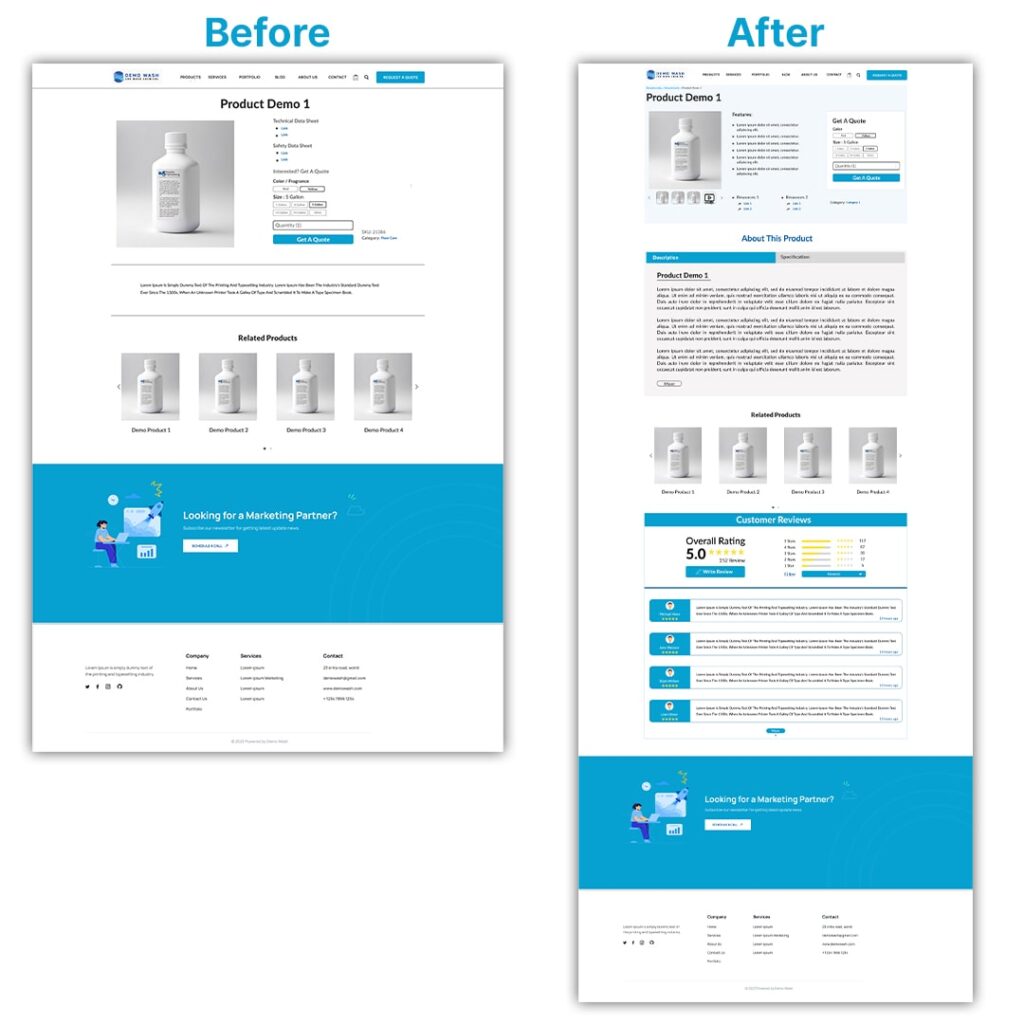Are you ready to take your real estate career to the next level? If so, you are in the right place!
After all, in today’s fast-paced market, having a solid real estate marketing plan isn’t just an option; it’s a necessity. For instance, while closing deals, you are also attracting a steady stream of clients who come to you because they recognize your brand and trust your expertise.
Sounds appealing, right? This guide is designed to walk you through the essential steps to create a powerful real estate marketing plan that resonates with your target audience and helps you achieve your business goals.
So, whether you are just starting out or looking to revamp your current strategy, we have got you covered with actionable insights and tips that will indeed make a difference – turning those leads into loyal clients.
Read on to find out!
What is a Real Estate Marketing Plan?
A real estate marketing plan is your roadmap to success in this bustling world of property sales. That is, you can think of it as your blueprint for attracting clients and closing deals.

At its core, a marketing plan outlines your goals, strategies, and the specific actions you will take to promote your services and properties.
It helps you identify your target audience—whether they are first-time homebuyers, seasoned investors, or renters looking for their next place—so you can tailor your messaging to resonate with them.
Besides, this real estate plan doesn’t just help you market your listings; it also positions you as a trusted expert in your local market.
And by defining your unique selling proposition (USP) and choosing the right channels to reach your audience—like social media, email marketing, and open houses—you are essentially setting yourself up for a successful real estate journey.
In short, a well-crafted real estate marketing plan is super important for standing out in a competitive world and achieving your business objectives!
Why Strategic Real Estate Marketing is Important?
For starters, a well-thought-out marketing strategy helps you identify and understand your target audience. Knowing who you are trying to reach allows you to tailor your messages and marketing tactics to resonate with their needs and desires.
For example, if you are targeting first-time homebuyers, your marketing materials should focus on affordability, financing options, and community resources that help ease their buying journey.
Moreover, strategic marketing helps you differentiate yourself from the competition. In a sea of real estate agents, having a unique selling proposition (USP) sets you apart.

This could be anything from your local market expertise to specialized services, like helping investors find profitable rental properties. When you clearly communicate your USP, potential clients know why they should choose you over others.
Another reason strategic real estate marketing is important is that it optimizes your resources. Instead of casting a wide net and hoping for the best, a strategic approach allows you to focus your time and budget on the most effective channels.
For instance, if your target audience primarily uses social media, investing in online ads or engaging content for those platforms makes more sense than traditional methods that may yield lower returns. This not only maximizes your marketing budget but also ensures that you are reaching the right people at the right time.
Key Components of a Successful Real Estate Marketing Plan
Creating a successful real estate marketing plan requires a strategic blend of various components that work together to attract and engage your target audience.
Here, each element plays a vital role in ensuring your marketing efforts are effective and yield the desired results. Now, let’s break down these key real estate marketing components to help you build a winning strategy:
Defining Your Target Audience
Understanding your audience is the foundation of any successful marketing plan. By identifying who you want to reach—be it first-time homebuyers, seasoned investors, or renters—you can tailor your messaging and marketing strategies to resonate with their needs and preferences.
This targeted approach enhances the chances of engagement and conversion.
Establishing a Unique Selling Proposition (USP)
Your USP is what sets you apart from the competition. It could be your expertise in a specific neighborhood, exceptional customer service, or innovative marketing techniques.
Clearly articulating your USP helps potential clients understand why they should choose you, creating trust and credibility in the process.

Building a Comprehensive Online Presence
Your website should be professional, user-friendly, and filled with valuable content like market insights, tips for buyers and sellers, and client testimonials.
Additionally, actively engaging on social media platforms allows you to connect with your audience, show listings, and position yourself as an authority in your field.
Integrating Traditional Marketing with Data-Driven Insights
While digital marketing is crucial, blending in traditional methods like direct mail, open houses, and local events enhances your reach and brand presence to a whole new level.
However, to ensure ongoing success, you must use metrics and analytics to track KPIs such as website traffic, lead generation, and social media engagement. As a result, this balanced, data-driven approach enables you to better refine your strategy, boosting brand visibility and maximizing ROI.
Step-by-Step Guide to Building Your Real Estate Marketing Plan
Creating a solid real estate strategy can feel overwhelming, but breaking it down into manageable steps makes the process much easier and more effective.
Here’s how to build a comprehensive real estate marketing plan that works for you:
Step 1: Define Your Goals
Start by identifying what you want to achieve with your marketing plan.
Are you aiming to increase your client base, boost sales for a specific property, or build brand awareness in your local market? Setting clear, measurable goals will give you a roadmap to follow and help you gauge your progress along the way.
Step 2: Identify Your Target Audience
Understanding who your ideal clients are is crucial to tailoring your marketing efforts. Are you focusing on first-time homebuyers, luxury property investors, or perhaps renters?
By knowing your audience, you can create messaging that resonates with their needs and preferences, ultimately increasing your chances of success.
Step 3: Develop Your Unique Selling Proposition (USP)
What sets you apart from other agents? Your USP should highlight your strengths and what makes you unique in the market.
Whether it’s your expertise in a specific neighborhood or your commitment to outstanding customer service, clearly communicating your USP helps build trust and credibility with potential clients.

Step 4: Choose Your Marketing Channels
Next, decide which marketing channels you will use to reach your target audience. This could include social media, email marketing, your website, and traditional methods like direct mail or open houses. A multi-channel approach ensures you are maximizing your visibility and connecting with clients in various ways.
Step 5: Create a Content Plan
Content is king in real estate marketing. Hence, develop a content plan that includes blog posts, social media updates, email newsletters, and videos showing your listings or offering valuable tips.
Consistently providing high-quality content keeps your audience engaged and positions you as an expert in your field.
Step 6: Set a Budget
Determine how much you are willing to invest in your marketing efforts. Also, make sure to consider costs for advertising, website maintenance, content creation, and any other expenses related to your marketing plan. Having a budget in place ensures you allocate resources wisely and stay within your financial means.
Step 7: Monitor and Adjust
Finally, continuously monitor the effectiveness of your marketing efforts. You can use analytics tools to track website traffic, lead generation, and social media engagement.
Based on the data you collect, be prepared to adjust your strategy as needed. This agile approach allows you to capitalize on what works and pivot away from what doesn’t.
Top Marketing Strategies for Real Estate Investors
For real estate investors, having a solid marketing strategy is essential to finding lucrative opportunities and maximizing returns.
So, what are the best ways to get your name out there and attract potential deals?
Let’s find out:
Build a Strong Online Presence
Start by creating a professional website that shows your portfolio, services, and testimonials. Make sure it’s well-optimized for search engines (SEO) so that potential clients can easily find you when they search for investment properties.
Additionally, leveraging social media platforms like Instagram and LinkedIn can help you engage with a broader audience, share valuable content, and highlight your expertise in the real estate market.
Utilize Email Marketing
Email marketing is a powerful tool for real estate investors to nurture leads and stay connected with clients. Create a newsletter that provides insights on market trends, investment tips, and property listings.
Regularly sending informative and engaging content not only keeps you top-of-mind for potential clients but also establishes you as an authority in your field.
Also, don’t forget to segment your email list to tailor your messages to different types of investors, ensuring that your communication is relevant to their needs.
Network, Network, Network
Attend industry conferences, local real estate meetups, and networking events to connect with other investors, real estate agents, and potential partners.
Building a strong network can lead to valuable referrals and partnerships. Hence, make sure to share your expertise and offer help to others in your network; it often pays off in the long run.
Create Valuable Content
Start a blog or a YouTube channel where you share tips, strategies, and insights about real estate investing. This will not only provide value to your audience but also improves your online visibility.
Consider producing case studies or success stories that highlight your investment strategies and results, giving potential clients a glimpse into what they can achieve by working with you.
Invest in Targeted Advertising
Paid advertising can be a game-changer for real estate investors looking to generate leads quickly. Consider using pay-per-click (PPC) ads on platforms like Google and social media ads on Facebook and Instagram to reach a targeted audience.
You can also refine your audience based on demographics, interests, and location, ensuring that your ads reach those most likely to be interested in your investment properties.

Leverage Local SEO
Since real estate is inherently local, optimizing your marketing efforts for local search is vital. Make sure to claim and optimize your Google My Business listing, ensuring that your contact information, hours, and services are up to date.
Encouraging satisfied clients to leave positive reviews can also boost your local SEO rankings and attract more leads. The goal is to become the go-to expert for real estate investments in your area!
Benefits of a Real Estate Marketing Plan
Creating a robust marketing plan isn’t just a good idea; it’s essential for anyone looking to thrive in the competitive real estate market.
So, what are the real estate marketing benefits that make this investment worthwhile?
Let’s explore how a well-crafted real estate marketing plan can transform your business and help you achieve your goals:
Clear Direction and Focus
One of the primary real estate marketing benefits is that it provides you with a clear direction and focus. A real estate marketing plan outlines your goals, target audience, and strategies, helping you stay on track and avoid wasting time and resources on ineffective tactics.
With a roadmap in place, you can prioritize your efforts and channel your energy toward the most impactful activities that drive results.

Better Understanding of Your Audience
Having a marketing plan forces you to dive deep into understanding your target audience. As a result, by defining who your ideal clients are, you can tailor your messaging and strategies to meet their specific needs and preferences.
This personalized approach, in turn, increases engagement along with enhancing the chances of converting leads into clients. When you know your audience, you can speak directly to their desires and pain points, creating a stronger connection.
Consistency in Branding and Messaging
A solid real estate marketing plan ensures that your branding and messaging remain consistent across all channels. After all, consistency is key to building trust and recognition in the real estate market.
When potential clients see your brand and messaging align across your website, social media, and marketing materials, it reinforces your credibility and professionalism.
This cohesive image helps you stand out in a crowded market, making it easier for clients to remember you when they need your services.
Improved ROI
Investing in a real estate marketing plan can lead to a significantly improved return on investment (ROI). By strategically allocating your resources to the most effective marketing channels and tactics, you can maximize your reach and minimize wasted spend.
Tracking and analyzing the performance of your marketing efforts also allows you to make data-driven decisions, ensuring you continuously optimize your strategies for the best results.
Enhanced Adaptability
The real estate market is constantly evolving, and having a marketing plan in place allows you to adapt more readily to changes and trends.
With clear goals and metrics in place, you can quickly assess what’s working and what isn’t, making it easier to pivot your strategy when necessary. This agility is crucial for staying ahead of the competition and meeting the ever-changing needs of your clients.
Increased Lead Generation
Perhaps one of the most compelling real estate marketing benefits is the potential for increased lead generation.
A well-executed real estate marketing plan employs a mix of strategies—such as content marketing, social media, and targeted advertising—that work together to attract and engage potential clients.
That is, by consistently generating leads, you create a steady pipeline of opportunities, ultimately boosting your chances of closing deals and growing your business.
Tips for Developing a Results-Oriented Marketing Plan
Creating a results oriented real estate plan is crucial for achieving your business goals and standing out in a competitive market.
But how do you ensure that your marketing efforts are genuinely driving results?
Below are some practical tips to help you develop a marketing plan that not only looks good on paper but also delivers real, measurable outcomes:

Set SMART Goals: Begin by establishing specific, measurable, achievable, relevant, and time-bound (SMART) goals. Instead of general objectives like “sell more houses,” aim for targets such as “close three sales in the next quarter.” This focus helps you break down actions and measure progress effectively.
Know Your Target Market: Conduct a thorough research on your ideal client profile and create buyer personas to pinpoint where they spend time online and offline. Understanding their needs and preferences will enable you to tailor messaging that resonates.
Diversify Marketing Channels: Balance online efforts with traditional channels—social media, email marketing, networking events, and even local advertising—to reach clients from different avenues. Also, test various channels to find the best mix for your audience.
Create Valuable Content: Develop high-quality, informative content that addresses common client questions, offers insights, and shows your expertise. Consider blog posts, videos, infographics, and case studies. This content keeps leads engaged and encourages them to reach out.
Monitor Your Progress: Consistently track key performance indicators (KPIs), such as lead generation, engagement rates, and conversions. Plus, use analytics to assess campaign effectiveness and identify areas needing improvement.
Stay Adaptable: Be ready to pivot as market trends, consumer behaviors, and technology evolve. Flexibility in your plan allows you to adjust strategies when needed, ensuring your marketing stays relevant.
Collaborate with Experts: If you are uncertain about refining your strategy, make sure to work with marketing professionals or real estate coaches. Their insights can help streamline your plan, save you time, and avoid common mistakes.
Tracking and Measuring Success
Tracking and measuring the success of your marketing efforts is crucial for ensuring that your real estate marketing plan is on the right track.
After all, what’s the point of putting in all that effort if you can’t see the results?
Here’s how to effectively measure marketing plans to ensure they are delivering the results you want:
Set Clear KPIs
To measure your marketing plans effectively, you first need to establish clear Key Performance Indicators (KPIs).
These are specific metrics that align with your goals, such as the number of leads generated, website traffic, conversion rates, and social media engagement. By defining your KPIs upfront, you create benchmarks to evaluate your success and identify areas for improvement.

Use Analytics Tools
Make the most of digital analytics tools to track your marketing performance. Platforms like Google Analytics can provide valuable insights into website traffic, user behavior, and conversion paths.
Social media platforms also offer built-in analytics to help you gauge engagement and reach. By diving into the data, you can see what’s resonating with your audience and adjust your strategies accordingly.
Monitor Lead Sources
Understanding where your leads are coming from is essential for measuring the effectiveness of your marketing plans. Use unique tracking links or dedicated phone numbers for different campaigns to see which channels are generating the most leads.
This information can help you allocate your resources more effectively and focus on the strategies that yield the best results.
Regularly Review and Analyze Data
Don’t just collect data—analyze it regularly!
Set aside time each month or quarter to review your KPIs and assess your overall performance. Look for trends, patterns, and insights that can guide your future marketing decisions.
Are certain strategies consistently outperforming others? Use this information to double down on what works and tweak what doesn’t.
Gather Feedback from Clients
Another valuable way to measure the success of your marketing plans is by gathering feedback directly from your clients. Surveys, interviews, or even casual conversations can provide insights into what attracted them to your services and how they found you.
This qualitative data complements your quantitative metrics and gives you a fuller picture of your marketing effectiveness.

Be Ready to Pivot
The real estate market is dynamic, and so should be your marketing strategies. If you find that certain tactics aren’t performing as well as you hoped, don’t be afraid to pivot.
Instead, use your tracking and measuring efforts to adapt your approach, whether that means investing more in a high-performing channel or rethinking your messaging.
Conclusion
Building a successful real estate marketing plan takes time, effort, and a dash of creativity, but the rewards are well worth it.
And by understanding your audience, utilizing the right tools, and implementing effective strategies, you will not only stand out in a crowded market but also build lasting relationships with your clients.
However, as above-mentioned, this isn’t just about selling properties; it’s also about creating a brand that people trust and turn to.
So, take the first step today—create your desired marketing plan, and watch your real estate business thrive!








